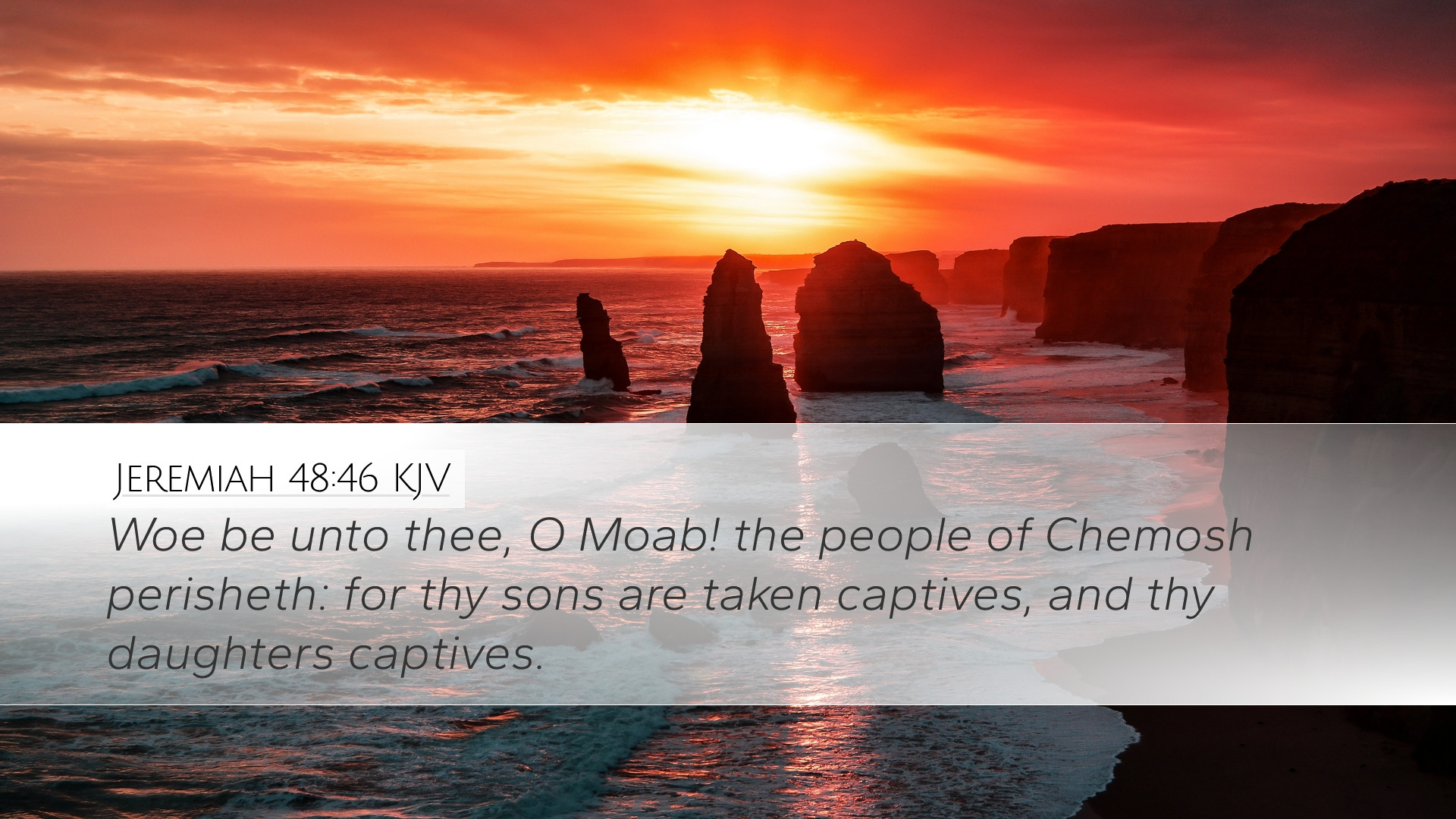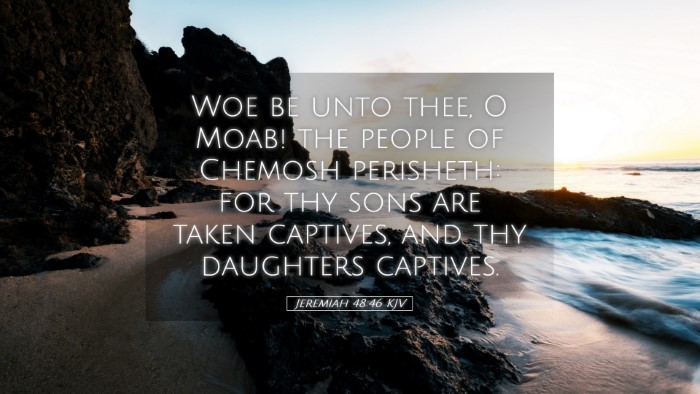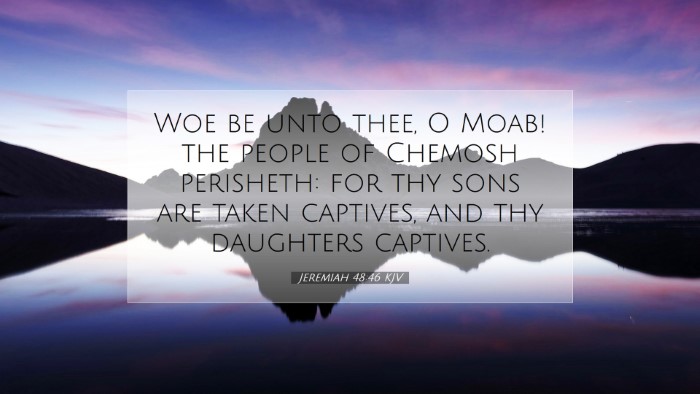Bible Commentary on Jeremiah 48:46
Introduction
Jeremiah 48:46 encapsulates a pronouncement of divine judgment upon the nation of Moab. It illustrates the themes of divine justice and the inevitable consequences of turning away from God. Understanding this verse, within the larger context of Jeremiah, allows us to appreciate its theological and historical significance.
Text of Jeremiah 48:46
“Woe to you, O Moab! The people of Chemosh are undone; for your sons have been taken captive, and your daughters into captivity.”
Contextual Analysis
The book of Jeremiah serves as a prophetic warning to the people of Judah, and in this chapter, a similar message is directed towards Moab. Moab, a nation situated east of the Jordan River, historically contested with Israel. The chapter paints a vivid picture of Moab's impending doom due to their idolatry and opposition to God’s chosen people.
The Historical Background
Moab was known for worshipping Chemosh, a god who required child sacrifices and led the Moabites into moral depravity. This worship starkly contrasted with the calls for faithfulness to Yahweh, as seen through the prophetic voice of Jeremiah.
Commentary Insights
1. Matthew Henry's Commentary
Matthew Henry emphasizes the sorrowful state of Moab, conveying the certainty of captivity and destruction. He expresses that the “woe” pronounced is both a literal and metaphorical representation of the despair that awaits the Moabites, stemming from their reliance on false gods. The mention of their young being taken captive highlights the totality of their suffering and the generational impact of their sins.
2. Albert Barnes' Notes
Barnes interprets this verse as a warning against complacency and false security. He notes that Moab’s downfall is rooted in its idolatry, signifying a failure to recognize the sovereignty of God. The phrase “people of Chemosh” reflects their national identity, which is steeped in rebellion against God. Barnes points out that, unlike the Moabites who placed their trust in Chemosh, true security can only be found in the living God.
3. Adam Clarke's Commentary
Clarke provides a detailed exposition on the nature of Chemosh and the cultural implications of Moabite worship. He asserts that the capture of their children symbolizes both a physical and spiritual defeat, as it represents the loss of future generations who might have perpetuated idolatrous practices. This underscores the broader theological theme of God’s judgment against nations that reject Him.
Theological Reflections
The lamentation over Moab serves as a poignant reminder of the consequences of forsaking divine guidance. Jeremiah 48:46 functions as a dire warning against idolatry, showcasing that the abandonment of God leads to desolation and despair. The text implores believers to reflect on their own lives and the nations around them, urging a consistently faithful walk before the Lord, so as not to fall into similar peril.
Idolatry and Its Consequences
The worship of Chemosh demonstrates how idolatry can permeate a society, leading to moral decline. As both Henry and Barnes note, Moab’s trust in false deities not only warranted their destruction but echoed a divine principle applicable to all nations and individuals today; turning away from God invites calamity.
Practical Applications
-
National Accountability: Understanding that nations and communities bear responsibility before God encourages prayer and intercession for divine mercy and transformation.
-
Individual Faithfulness: Believers are called to examine their hearts for any modern-day “Chemosh”—things that may take precedence over their devotion to God.
-
Importance of Generational Faith: The captivity of Moab’s children serves as a reminder for spiritual leaders to invest in the next generation, ensuring that they uphold and pass on true faith.
Conclusion
Jeremiah 48:46 serves as a sobering reminder of the consequences of idolatry and neglecting God’s covenant. Reflecting on the insights from Henry, Barnes, and Clarke, we find that the text not only pertains to ancient Moab but carries enduring truths relevant for believers today. It calls us to a deeper understanding of divine judgment and a commitment to faithfulness before God, lest we fall captive to our distractions and idols.


